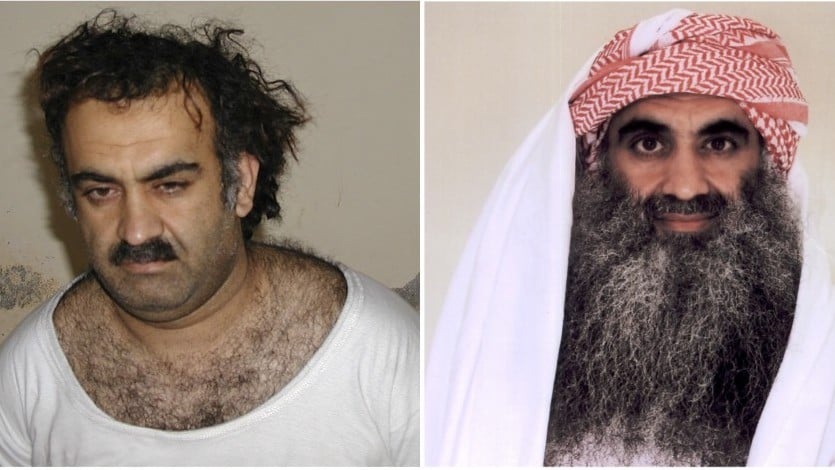A divided U.S. federal appeals court has struck down a plea agreement that would have allowed Khalid Sheikh Mohammed, the alleged mastermind behind the September 11 attacks, to avoid the death penalty.
The decision adds yet another delay to a legal process that has already spanned more than two decades.
On Friday, a three-judge panel of the U.S. Court of Appeals for the District of Columbia ruled 2-1 to void the deal, which had been years in the making and approved by military prosecutors and the Pentagon’s top Guantanamo official.
The proposed agreement would have sentenced Mohammed and two of his co-defendants to life imprisonment without parole in exchange for guilty pleas.
Mohammed is accused of orchestrating the 2001 terrorist attacks that killed nearly 3,000 people by hijacking commercial airliners and crashing them into the World Trade Center and the Pentagon.
The plea deal had been negotiated over two years and was finalized in 2023.
However, then–Secretary of Defense Lloyd Austin intervened.
Austin stated that a case of such magnitude, one involving the deadliest terrorist attack in U.S. history, required a decision on capital punishment from the Secretary of Defense himself.
Defense attorneys argued that the agreement had already taken legal effect and that Austin’s rejection came too late.
Their position had been supported by both the military judge at Guantanamo Bay and a military appeals panel.
However, the federal appeals court disagreed. Judges Patricia Millett and Neomi Rao, who formed the majority, concluded that Austin acted within his legal authority to nullify the deal.
“The Secretary determined that the families and the American public deserve the opportunity to see military commission trials carried out,” the judges wrote in their decision.
“We decline to second-guess his judgment.”
Millett was appointed by former President Barack Obama, while Rao was nominated by Donald Trump.
In a sharp dissent, Judge Robert Wilkins, also an Obama appointee, criticized the ruling, calling it “stunning.”
He argued that military courts should be given deference when interpreting their own rules, adding that the government had failed to demonstrate clear legal error in the earlier decisions.
The ruling comes amid a long and fraught legal saga involving the Guantanamo military commissions, plagued by delays, procedural disputes, and challenges around classified evidence.
The court’s decision signals there will be no quick resolution to the high-profile case.
Public opinion among 9/11 victims’ families remains divided.
Some have pushed for a trial, viewing it as the only legitimate path to justice and a chance to uncover further information about the attacks.
Others, weary from decades of legal limbo, supported the plea deal as a means to finally obtain answers and bring the case to a close.
Brett Eagleson, who lost his father John Bruce Eagleson in the attacks, welcomed the court’s decision.
“A plea deal allows this to be tucked away… and forgotten about,” he said.
“The only valid way to get answers and seek the truth is through a trial.”
Eagleson remained skeptical that the defendants would be truthful under a plea agreement, despite provisions requiring them to answer victims’ families’ questions.
In contrast, Elizabeth Miller, who was just six years old when her father, firefighter Douglas Miller, died in the attacks, supported the plea deal.
She expressed doubt that a full trial will ever take place.
“We’re in 2025, and we’re still at the pretrial stage,” she noted, adding that her personal opposition to the death penalty also influenced her stance.
Attorneys for Mohammed and co-defendant Mustafa al Hawsawi did not respond to media inquiries.
However, Matthew Engle, representing Walid bin ‘Atash, the third defendant, said further appeals, including potentially to the Supreme Court, are being considered.
Mohammed remains the most high-profile detainee at Guantanamo Bay, the detention center established by President George W. Bush in 2002 to house foreign terrorism suspects following the 9/11 attacks.
The facility and its legal processes have long drawn criticism from human rights advocates and legal scholars for indefinite detentions and lack of transparent judicial proceedings.
With the plea agreement overturned, the case continues its uncertain path through a legal system still struggling to bring closure to one of the darkest chapters in modern American history.



